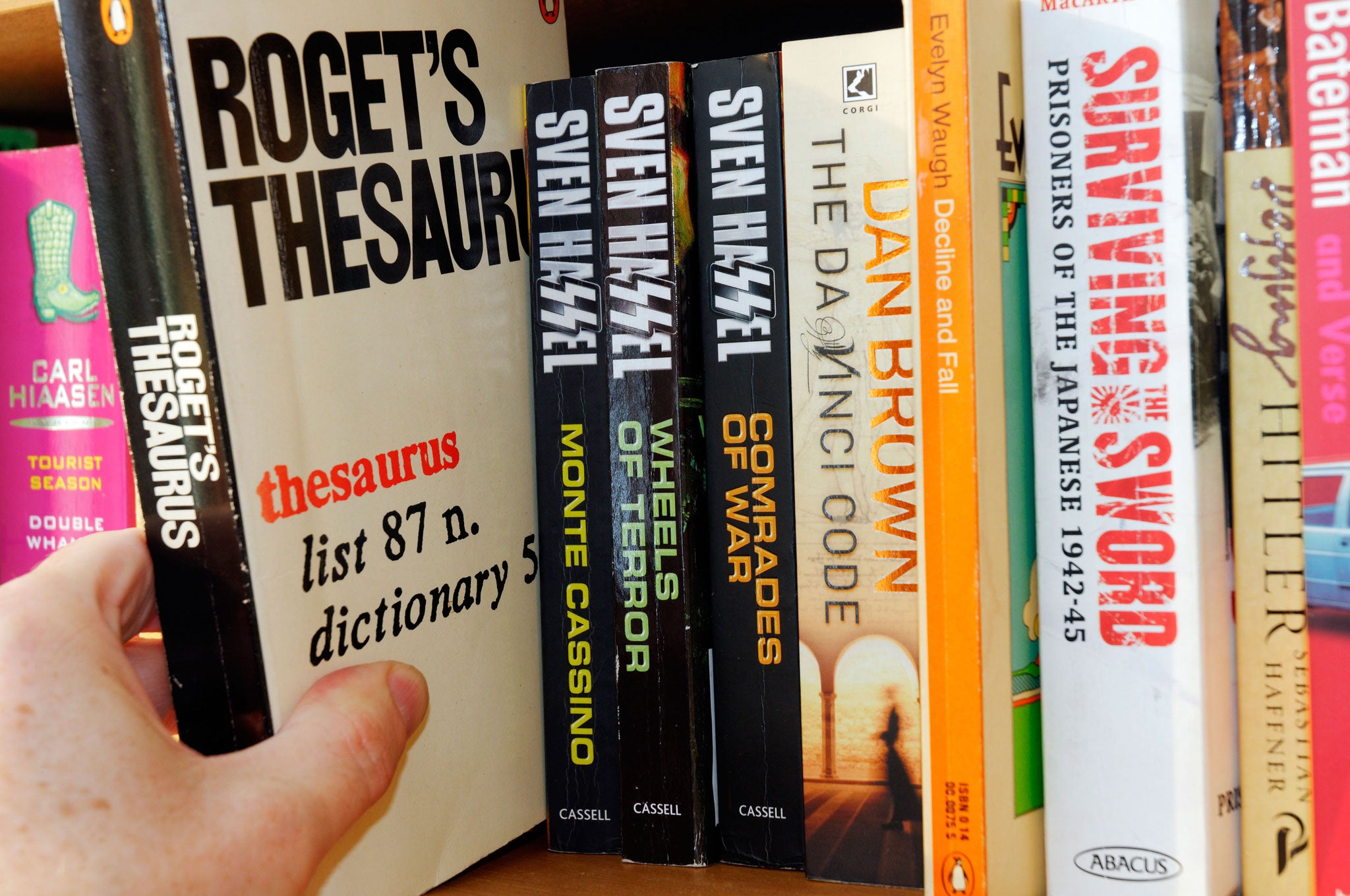Rhodri Marsden's Interesting Objects: Roget's Thesaurus

Your support helps us to tell the story
From reproductive rights to climate change to Big Tech, The Independent is on the ground when the story is developing. Whether it's investigating the financials of Elon Musk's pro-Trump PAC or producing our latest documentary, 'The A Word', which shines a light on the American women fighting for reproductive rights, we know how important it is to parse out the facts from the messaging.
At such a critical moment in US history, we need reporters on the ground. Your donation allows us to keep sending journalists to speak to both sides of the story.
The Independent is trusted by Americans across the entire political spectrum. And unlike many other quality news outlets, we choose not to lock Americans out of our reporting and analysis with paywalls. We believe quality journalism should be available to everyone, paid for by those who can afford it.
Your support makes all the difference.* This weekend marks the 236th birthday of natural scientist Dr Peter Roget, a man so fond of list-making that he penned perhaps the ultimate list: the Thesaurus. It wasn't the first book to bring together English synonyms – Hester Piozzi's British Synonymy predated it by 60 years – but it would eventually become a celebrated work of linguistic reference.
* Roget's life was troubled. His father died when he was four years old, and his close family were plagued by poor mental health. Many have linked Roget's fondness for lists with his need to establish order in a chaotic life, but he was also blessed with a scientific mind; his two-volume Animal and Vegetable Physiology, published while he was secretary to the Royal Society, was a "compendious" tome that demonstrated not only his religious belief in order and perfection in nature, but also his fascination for classification.
* That interest extended into semantics. In 1805 he had put together a collection of 15,000 words that weren't explained, merely listed in categories. It began, in neat handwriting: "Existence: end, entity, being, existence, essence..." That list, however, lay dormant for years. "I often contemplated its extension," he later wrote, "but a sense of the magnitude of the task... deterred me from the attempt."
* After standing down from his post at the Royal Society in 1848 he returned to the list. The book was eventually published in April 1852, but received a lukewarm response; one reviewer described it as a "convenience", and mused "whether it is not better to be able to dispense with foreign assistance". But it sold upwards of 1,000 copies a year, and in the 20th century became indispensable; poet Sylvia Plath once described herself as "Roget's Strumpet". Roget himself continued to work on the book until his death in 1869. He was 90.
@rhodri
Join our commenting forum
Join thought-provoking conversations, follow other Independent readers and see their replies
Comments